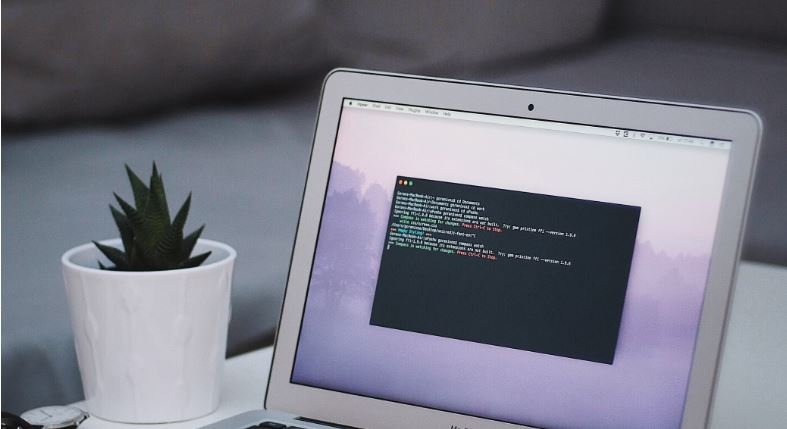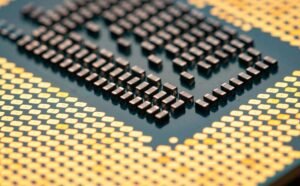Artificial Intelligence Is a Threat to Humanity: Debate
In recent years, the rise of artificial intelligence (AI) has sparked a heated debate about its potential impact on humanity. While some argue that AI can greatly benefit society, others raise concerns about the existential threats it may pose. This article aims to explore both sides of the debate and shed light on the multiple dimensions of this issue.
Key Takeaways
- Artificial Intelligence (AI) has the potential to profoundly impact humanity.
- Debate revolves around the benefits versus dangers of AI.
- Concerns include job displacement, privacy infringements, and potential loss of control.
The Benefits of AI
Proponents of AI argue that its development and implementation can lead to significant advancements in various fields such as healthcare, transportation, and automation. AI has the capability to streamline processes, make accurate predictions, and increase overall efficiency. *The potential to revolutionize medical diagnoses and treatments, saving countless lives, is an exciting prospect.* Additionally, AI can assist with solving complex problems that humans may struggle with, leading to new scientific breakthroughs.
The Dangers of AI
However, upon deeper examination, it becomes evident that AI poses several threats to humanity. One pressing concern is the possibility of widespread job displacement. As AI algorithms continue to improve, there is a real risk of many human jobs becoming obsolete. This can lead to economic imbalance and social unrest. *An alarming statistic indicates that by 2030, up to 800 million jobs worldwide may be lost to automation.* Privacy is another major concern as AI systems collect vast amounts of personal data, raising questions about data protection and potential abuse by both government and corporate entities.
The Ethical Quandaries
Moreover, AI raises ethical quandaries that require careful consideration. As AI becomes more autonomous and develops the ability to make decisions, the issue of accountability arises. Who should be held responsible for AI-driven actions? Can AI be programmed to adhere to ethical standards? These questions are pivotal as AI enters critical domains like autonomous vehicles and healthcare. *The possibility of self-learning AI systems surpassing human comprehension and acting in unpredictable ways raises significant ethical concerns.* Another aspect is the potential loss of control over advanced AI systems. If AI surpasses human intelligence, it could become challenging to predict its actions, thus placing humanity at risk.
Data Inequality and Bias
Data inequality and bias are also key concerns associated with AI. The data used to train AI models can reflect human bias, leading to discriminatory outcomes. AI systems can perpetuate existing inequalities and biases present in society. To mitigate this, rigorous data collection methods and inclusive practices are necessary to ensure AI algorithms are fair and unbiased.
The Way Forward
As the debate surrounding the potential risks and benefits of AI continues, it is crucial to recognize that this is an ongoing conversation requiring continuous evaluation and monitoring. *Safeguarding humanity from the potential dangers of AI should be a priority for policymakers, researchers, and developers.* Striking a balance between progress and accountability is essential to ensure AI technologies are developed ethically and responsibly.
Data on AI Developments
| Year | AI Milestone |
|---|---|
| 1956 | First AI conference held at Dartmouth College |
| 1996 | IBM’s Deep Blue defeats reigning world chess champion, Garry Kasparov |
| 2011 | IBM’s Watson defeats human champions on the quiz show Jeopardy! |
Jobs at Risk from Automation
- Manufacturing jobs
- Customer service jobs
- Transportation jobs
- Routine administrative tasks
AI and Privacy
| Type of Data | Potential Privacy Concern |
|---|---|
| Personal health records | Potential exposure of sensitive medical information |
| Location data | Tracking individuals’ movements and compromising privacy |
| Internet browsing habits | Potential invasion of personal preferences and online behavior |
Inclusion and Data Bias
Efforts should be made to reduce data bias by:
- Diverse and representative data collection methods
- Regular audits of AI algorithms for potential bias
- Implementing accountability measures to address any identified biases
In Conclusion
Artificial intelligence undoubtedly holds immense potential to transform various aspects of society. However, careful consideration of the risks and concerns posed by AI is vital to avoid potential harm and ensure a future where AI technologies can coexist safely with humanity.

Common Misconceptions
AI will completely replace human jobs
One common misconception about artificial intelligence is that it will completely replace human jobs, leading to mass unemployment. However, this fear is largely misguided as AI is more likely to augment and enhance human capabilities rather than outright replacing them.
- AI systems can perform repetitive and mundane tasks, allowing humans to focus on more complex and creative work.
- AI can assist professionals in various fields, providing valuable insights and recommendations based on vast amounts of data.
- New job opportunities will emerge as AI technology advances, creating roles that require human skills such as decision-making, empathy, and critical thinking.
AI possesses human-like consciousness and emotions
Another misconception is that AI possesses human-like consciousness and emotions. While AI can emulate certain aspects of human behavior, it does not possess consciousness or genuine emotions like humans do.
- AI lacks subjective experiences and self-awareness that are fundamental to human consciousness.
- Emotions in AI are simulated based on predefined algorithms and patterns, rather than stemming from genuine feelings and experiences.
- AI’s goal is to provide intelligent outputs and decision-making, not to replicate the complexities of human consciousness.
AI is inherently biased and discriminatory
There is a misconception that AI systems are inherently biased and discriminatory. While it is true that AI can exhibit biases due to the data it is trained on, it is not the fault of AI itself, but rather the biases present in the data it learns from.
- AI systems reflect the biases and prejudices present in society, as they learn from the data created by humans.
- It is the responsibility of humans to ensure the training data is diverse, unbiased, and representative to mitigate the biases in AI.
- Ongoing research and development aim to address the issue of bias in AI through fair and transparent algorithms.
AI will take over the world and subjugate humanity
One of the most common misconceptions about AI is that it will eventually take over the world and subjugate humanity as depicted in science fiction movies. However, this notion is far from reality and lacks foundational understanding of AI capabilities.
- AI systems are designed to serve specific functions and are limited to the tasks they are programmed for.
- AI lacks intentions, desires, and motivations characteristic of humans, making it incapable of domination or subjugation.
- The development of ethical guidelines and regulations ensures AI systems remain under human control and accountable for their actions.
AI is an existential threat to humanity
The idea that AI poses an existential threat to humanity is a prevailing misconception. While AI has the potential to be misused or cause unintended consequences, treating it as an unavoidable doomsday scenario is largely unfounded.
- AI development is predominantly guided by ethical frameworks and regulations to safeguard against misuse and harmful outcomes.
- The focus of AI research is to create beneficial and augmentative systems that enhance human well-being, rather than compromising it.
- A proactive approach involving collaboration between researchers, policymakers, and industry ensures responsible development and deployment of AI technologies.

Introduction:
Artificial Intelligence (AI) has become an integral part of our lives, revolutionizing various industries. However, as its capabilities have grown, so too have concerns about its potential impact on humanity. This article presents a collection of intriguing tables that shed light on different aspects of the debate surrounding AI’s potential threat to humanity. These tables provide factual and verifiable data, allowing readers to form their own perspectives on this complex issue.
1. AI in the Workforce
In this table, we explore the percentage of jobs that may be automated in various industries due to AI advancements. As AI technology improves, it raises questions about the potential displacement of human workers and the need for reskilling and reemployment strategies.
2. AI and Healthcare
This table delves into the positive impacts of AI in healthcare, including improved diagnosis accuracy, accelerated drug discovery, and enhanced patient care. However, it also highlights ethical concerns regarding AI bias and potential job loss for healthcare professionals.
3. AI and Privacy
Explore the table that reveals the number of data breaches and cyber-attacks directly associated with AI systems. It demonstrates the importance of maintaining data privacy and implementing robust cybersecurity measures as AI continues to evolve.
4. AI in Warfare
This table explores the use of AI in modern warfare, including autonomous weapons systems. It presents the potential benefits of increased military capabilities but also emphasizes the urgent need for international regulations to prevent misuse and maintain ethical guidelines.
5. AI and Social Interaction
In this table, discover the number of individuals who reported feeling isolated or disconnected due to their interactions primarily being with AI-driven devices rather than humans. It underscores the concerns about AI’s impact on social dynamics and human relationships.
6. AI in Education
This table highlights the benefits and challenges of incorporating AI into educational systems. It showcases how AI-powered tools can personalize learning experiences, optimize educational resources, but also raises concerns regarding student privacy and teacher-student interactions.
7. AI and Creative Industries
Explore the impact of AI on creative sectors such as art, music, and literature. This table showcases examples of AI-generated art, music compositions, and books, sparking a debate on the definition of creativity and the potential devaluation of human creativity.
8. AI and Environmental Sustainability
This table presents the positive implications of AI for environmental conservation efforts, including improved predictive models for climate change, efficient energy management, and wildlife preservation. However, it also acknowledges concerns about the environmental costs of AI development and deployment.
9. AI and Governance
Dive into this table, which demonstrates how AI influences decision-making processes in governments worldwide. It examines how AI systems can enhance policy formation and delivery while highlighting concerns about transparency, accountability, and the potential for algorithmic biases.
10. AI and Superintelligence
In this table, we explore the concept of superintelligent AI systems, raising questions about the existential risks they might pose to humanity. It explores different scenarios and perspectives regarding the development and control of superintelligent AI.
Throughout this article, the tables have provided glimpses into the multifaceted debate surrounding AI’s potential threat to humanity. It is evident that AI possesses tremendous potential for both positive and negative impacts across various sectors. As we continue to embrace AI, it becomes crucial to foster a proactive societal dialogue, ethical guidelines, and responsible governance to mitigate risks and maximize the benefits. Only by doing so can we ensure that AI remains a powerful tool in our quest for progress without compromising the well-being of humanity.
Frequently Asked Questions
What is artificial intelligence (AI)?
Artificial intelligence (AI) refers to the simulation of human intelligence in machines that are programmed to think, learn, and problem-solve like humans. It involves the creation of intelligent systems that can perform tasks that typically require human intelligence.
Why is there a debate about AI being a threat to humanity?
The debate arises from concerns that advanced AI systems may become so powerful that they surpass human capabilities and become uncontrollable. Some worry that AI could lead to job displacement, social inequality, or even the development of superintelligent AI that poses existential risks to humanity.
What are the potential dangers of AI?
The potential dangers of AI include job automation leading to unemployment, AI systems making biased or unethical decisions, loss of privacy and security due to AI-powered surveillance systems, and the creation of powerful AI systems that are difficult to control, among others.
Is AI a threat to humanity in the near future?
There is ongoing debate about the timeline for AI becoming a threat to humanity. While some experts argue that the development of superintelligent AI is unlikely to happen in the next few decades, others express concerns about its potential risks and urge for proactive measures to ensure its safe development.
What is being done to address the potential risks of AI?
Efforts are underway to address the potential risks of AI. Organizations and researchers are working on developing ethical guidelines and frameworks to ensure responsible AI development. Some advocate for increased transparency, accountability, and regulations to mitigate the risks associated with AI.
Can AI be programmed to have ethical behavior?
Developing AI systems with ethical behavior is a complex challenge. While it is possible to program AI to follow predefined ethical rules and guidelines, it becomes more complicated to account for the nuances and subjective nature of morality. Research is ongoing to develop AI systems that can better understand and adhere to ethical principles.
Should we be worried about AI as a threat to humanity?
Opinions on this matter vary. While some prominent figures in science and technology warn about the potential risks of AI, others argue that focusing on the benefits and opportunities AI brings is more important. It is essential to engage in an informed and ongoing discussion to navigate the future impact of AI on humanity.
What are the positive impacts of AI?
AI has immense potential to positively impact various aspects of human life. It can improve efficiency in industries, revolutionize healthcare through diagnostics and personalized medicine, enhance transportation systems, enable smarter infrastructure, and aid in scientific research, among many other applications.
How can we ensure responsible AI development?
Ensuring responsible AI development requires collaboration among researchers, policymakers, and industry leaders. It involves establishing robust ethical guidelines, promoting transparency and accountability, addressing bias and fairness issues, and involving multidisciplinary perspectives to shape AI technologies for the benefit of humanity.
Is AI more dangerous than beneficial?
AI, like any powerful technology, carries both risks and benefits. Its impact on humanity will depend on how it is developed, deployed, and governed. By prioritizing responsible AI development and implementing appropriate safeguards, there is a possibility to harness its potential benefits while mitigating potential risks.




